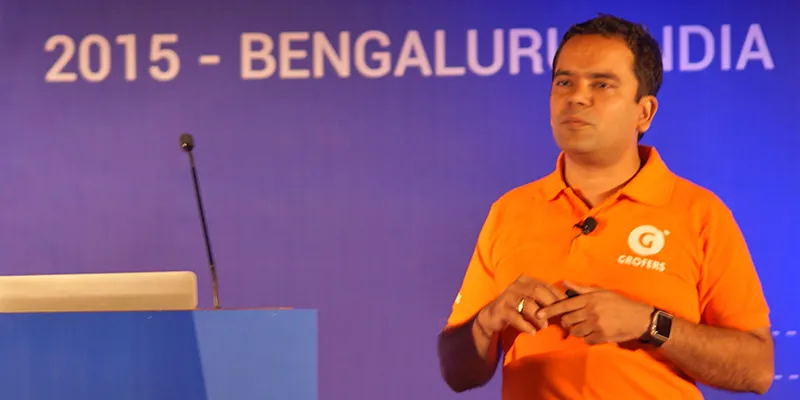It is survival of the fittest in the hyperlocal segment, say panelists at MobileSparks
Hyperlocal space is having its time under the spotlight in India and mobile is playing a pivotal role in driving the overall ecosystem. Startups like Peppertap, Grofers, and Jugnoo have been scaling up fast with unprecedented flow of VC money. All these startups are mobile-only platforms.

The three startups participated in local commerce panel at MobiSparks. Pointing out the reasons for their forya into the hyperlocal space, they said that the potential is immense as the market is highly unorganised and scattered. Speaking about thesis behind Jugnoo, its founder and CEO Samar Singla said,
“No one has tried to help autowallas minimise their dead inventory headache. Close to 70 per cent of the time they don’t get work. We are trying to solve this problem via ride booking and enabling hyperlocal deliveries.”
Grofers had raised over USD 60 million VC wealth across two rounds from Sequoia Capital. Explaining the broader challenges while expanding to other cities, Varuv Khurana, CTO, Groferssaid,
“We recently made a foray into Bengaluru and were exposed to new challenges, like when customers try to communicate in the regional language with our call centre executives based in Gurgaon, whohad no knowledge of the language.”
Peppertap, the brainchild of Navneet Singh and Millind Sharma, also sprang up in Gurgaon and had raised a seed and USD 10 million Series A round from Sequoia. Sequoia is betting big on both startups. Speaking of reasons for getting into grocery delivery space,
“I used to work six days and spend a major chunk of my Sundays purchasing grocery and hyperlocal needs (including FMCG). This prompted me to float PepperTap.”
Jugnoo had raised a round from Paytm and recently acquired Mumbai-based car rental startup BookMyCab.
Highlighting the challenges attached toaccelerating scale in local commerce, the founder of the Tiger Global-funded platform for local services, Locaoye,Aditya Rao, pointed out,
“Conquering a single location is easy but expanding footprint without proper homework could be risky for startups in this space.”
With more than a dozen players in the on-demand grocery space, consolidation can be expected. Besides smaller players, the hyperlocal segment has also attracted biggies like Paytm, Amazon, Flipkart, Ola and Snapdeal.
“Shutdown of several startups will happen for sure but the space is big enough to accommodate four-five players,” added Navneet. When asked if the space is a mere fad, Aditya said,
“There is some euphoria and buzz around building various niche hyperlocalsub-space (in product as well as service segments). Going forward, thosethat mushroomed as on-demand startups will succumb in this space, owing to operational and financial challenges.”







